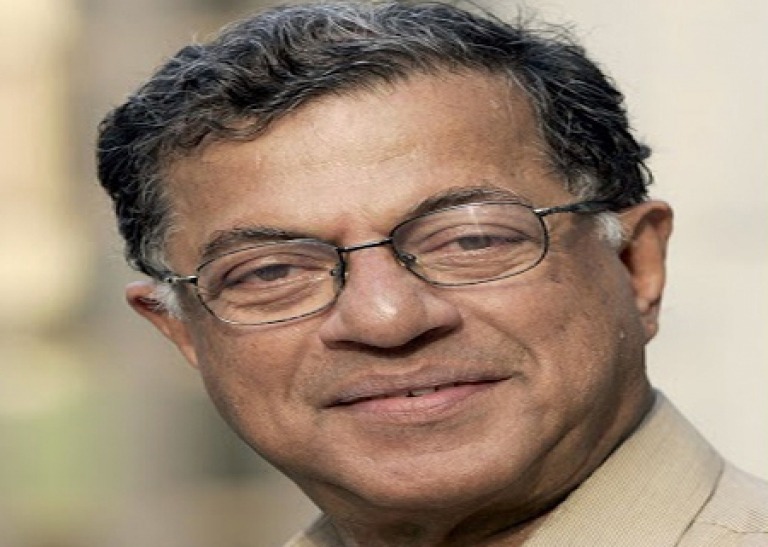Girish Karnad: Creative powerhouse
Girish Karnad
New Delhi: – Girish Karnad was one of the true intellectuals of post Independent India. A polyglot, playwright, actor, film maker, aesthete, scholar, teacher, critic and a humanist Girish was never a close friend but someone whom I always looked forward to meeting.
We came to know each other around 1972 through several common friends like Shyam Benegal, Basu Chatterjee, Satyadev Dubey and B.V. Karanth though I was acquainted with his work from the mid-sixties. His plays ‘Yayati’ (1961), ‘Tughlaq’ (1964), ‘Hayavadana’ (1972) and ‘Nagamandala’ (1988) rank among the finest Indian plays post-Independence.
A Rhodes scholar, Girish interestingly started by reading Mathematics in college. He was to become a scholar in history, literature, cinema and stagecraft. He was steeped in Indian tradition and had a deep study of our mythology, specially the Mahabharata.
He has won practically every award which an artiste in India can aspire for – Sangeet Natak Akademi Award, Sahitya Akademi Award, Kalidas Samman, Jnanpith Award, several National Awards for filmmaking, acting, screenwriting, Filmfare Awards, Rajyotasav Award besides a Padma Shri and Padma Bhusahn and several Doctorates.
Girish was a warm person but never hesitated to speak his mind. Whenever we met at different places and different periods in life, one could always pick up the threads of uninterrupted conversations of a shared past. In 1975, when I decided to turn a Producer (with some encouragement from my mentor Dev Anand), I zeroed in on doing an Indian version of ‘Pygmalion. The first choice for directing it was Basu Chatterjee. Dev Anand and Tina Munim were to play the leads. When we discussed the casting for Colonel Pickering’s character, both of us had two names in our list — Kishore Kumar and Girish Karnad. Kishore Da declined saying he would be singing Dev’s songs and so Basu Da called up Girish.
Girish not only agreed but also accepted our request to help us in the scripting of the film. The film took three years to make as everyone was extremely busy. Meanwhile, I wrote songs for many Basu Da’s films including Girish Karnads’s first Hindi hit ‘Swami’. From then on, we became friends and would meet at festivals, previews and plays. Later when he went to London as Director of the Nehru Centre in London, I visited him there.
I was later producing a James Bond kind of film with Dev Anand, Shammi Kapoor, Hema Malini, Tina Munim, Amjad Khan, Om Shivpuri, and others. I asked Girish to play an important role of a geologist in the film. He accepted even without asking what the role was. Unfortunately, the film got stalled mid-way. Rarely does an artiste excel in so many disciplines. He leaves behind a huge body of work.
Girish was a multi-faceted person. He served as director of the Film and Television Institute of India (1974-1975) and chairman of the Sangeet Natak Akademi (1988-93). He served as director of the Nehru Centre and as Minister of Culture in the Indian High Commission, London (2000-2003). He continued his association with stage and films till the end. He wrote two plays a few years ago – “Wedding Album” (2012) and “Boiled Beans on Toast” (2014) and worked in dozens of films in Kannada and Hindi including hits like “Ek Tha Tiger” and its sequel “Tiger Zinda Hai”.
His last film was the Kannada film “Apna Desh”. Some of his best films include “Nishant”, “Bhumika”, “Swami”, “Umbartha”, “Vamsha Vriksha”, “Cheluvi”, “Kalyug”, “Tarang”, “Man Pasand”, Ratnadeep”, “China Gate”, “Dor”, “Iqbal”, “Ek Tha Tiger”, “Tiger Zinda Hai” and “Shudhi”.
He was writing his autobiography when he passed away.
The kind of spontaneous tributes across political and disciplines which he has received are a testimony to the immense contribution of this scholar artiste in Indian culture in the past six decades. I will miss our stimulated conversations however short or infrequent they may have been. If there has been a real renaissance person in India of our times, it is Girish Karnad.
Farewell, gentle soul.
(As told to Radhika Bhirani).
Disclaimer: Validity of the above story is for 7 Days from original date of publishing. Source: AFP.


